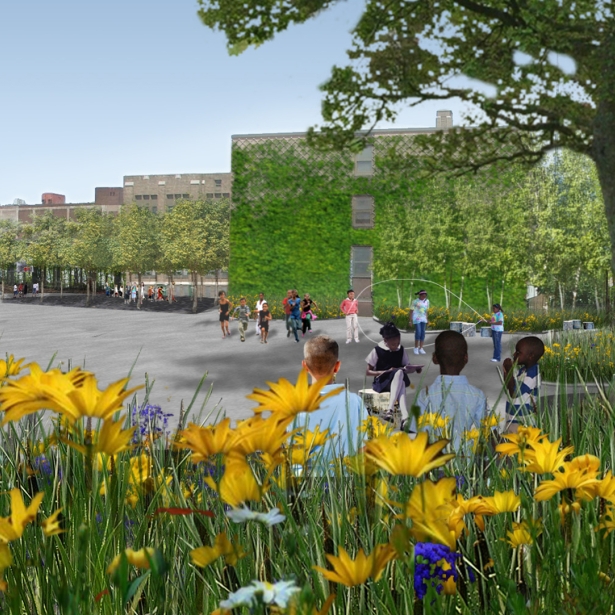GreenPlan Philadelphia
In 2011, the city of Philadelphia entered into a consent decree with the Environmental Protection Agency (EPA)—an enforcement mechanism embedded in the Clean Water Act that empowers the EPA to regulate combined sewer overflows (CSOs) when they damage the health of urban streams and water sources. CSO issues are common in communities throughout the postindustrial Northeast, where aging stormwater infrastructure and a proliferation of impervious surfaces can overwhelm municipal water utilities. But what set Philadelphia’s response apart from its predecessors was its focus on addressing the city’s CSO problem by investing in a distributed network of green infrastructure, an approach engendered by the city’s strong culture of community organizing by environmental nonprofits and the precedent of Anne Whiston Spirn’s work in West Philadelphia. GreenPlan Philadelphia was originally developed by WRT, LLC and became part of a multi-year planning process that led the city to adopt a variety of green infrastructure-driven reforms to its comprehensive plan, its water utility’s operations, and its municipal sustainability office. These efforts produced two additional initiatives: GreenWorks, the strategic plan to establish and grow Philadelphia’s Office of Sustainability; and the Green Cities, Clean Waters Initiative, a series of pricing and planning reforms within the large, innovative Philadelphia Water Department.
The jury for the Medal included Nicole Clare, senior vice president for housing development, Bowery Residents' Committee, Lisa Servon, Kevin and Erica Penn Presidential Professor and Weitzman chair of city and regional planning, Weitzman Dean and Paley Professor Fritz Steiner, Bill Witte, Weitzman alumnus and board of advisors member and ceo of Related California, and Tom Wright, president and ceo of Regional Plan Association (RPA).
-
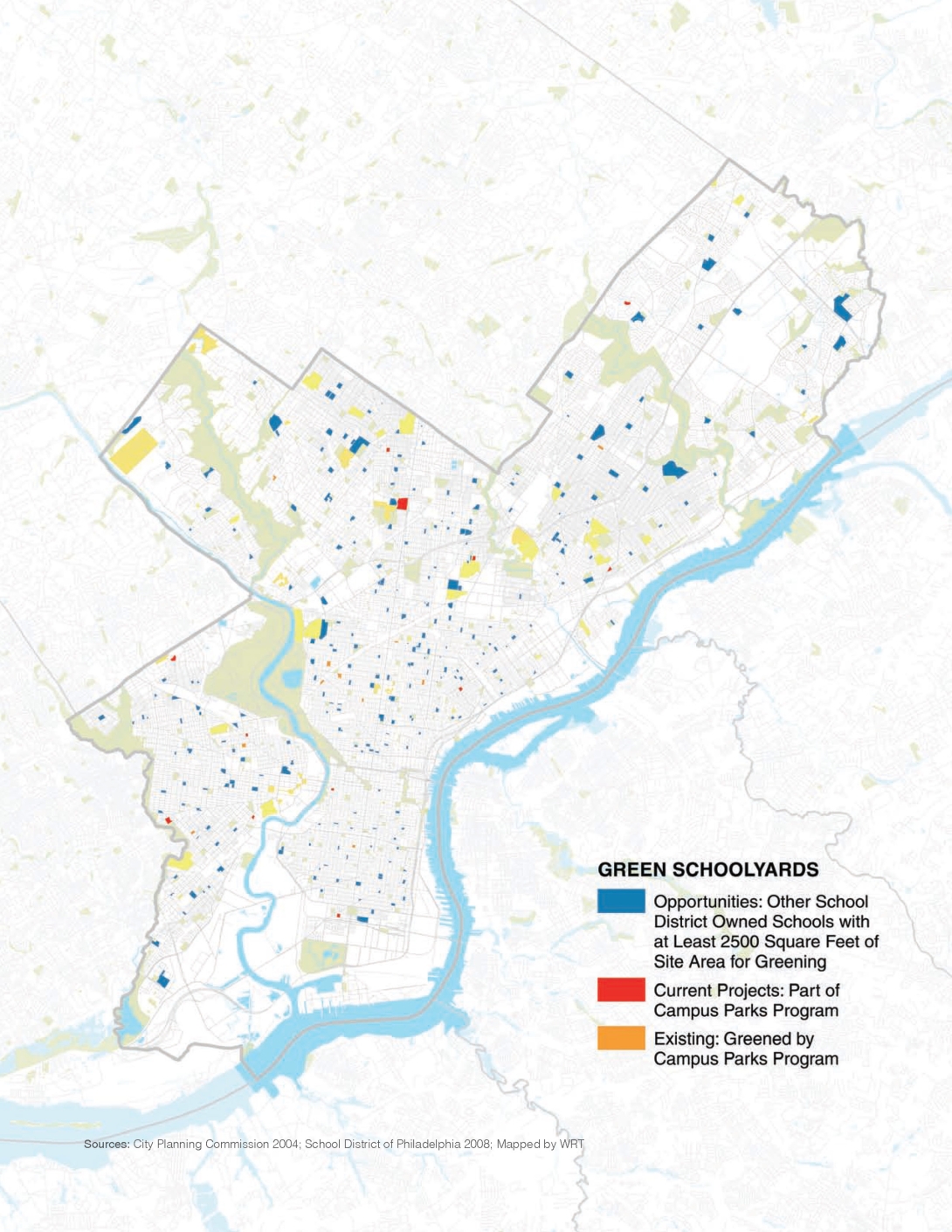 “We can put gardens on the roof tops of these schools and let the children care for them. We can get the cars off the grounds and put grass in its place. There is so much that can be done to improve the quality of our schools environment.” -GreenPlan Philadelphia civic engagement participant from Center City
“We can put gardens on the roof tops of these schools and let the children care for them. We can get the cars off the grounds and put grass in its place. There is so much that can be done to improve the quality of our schools environment.” -GreenPlan Philadelphia civic engagement participant from Center City -
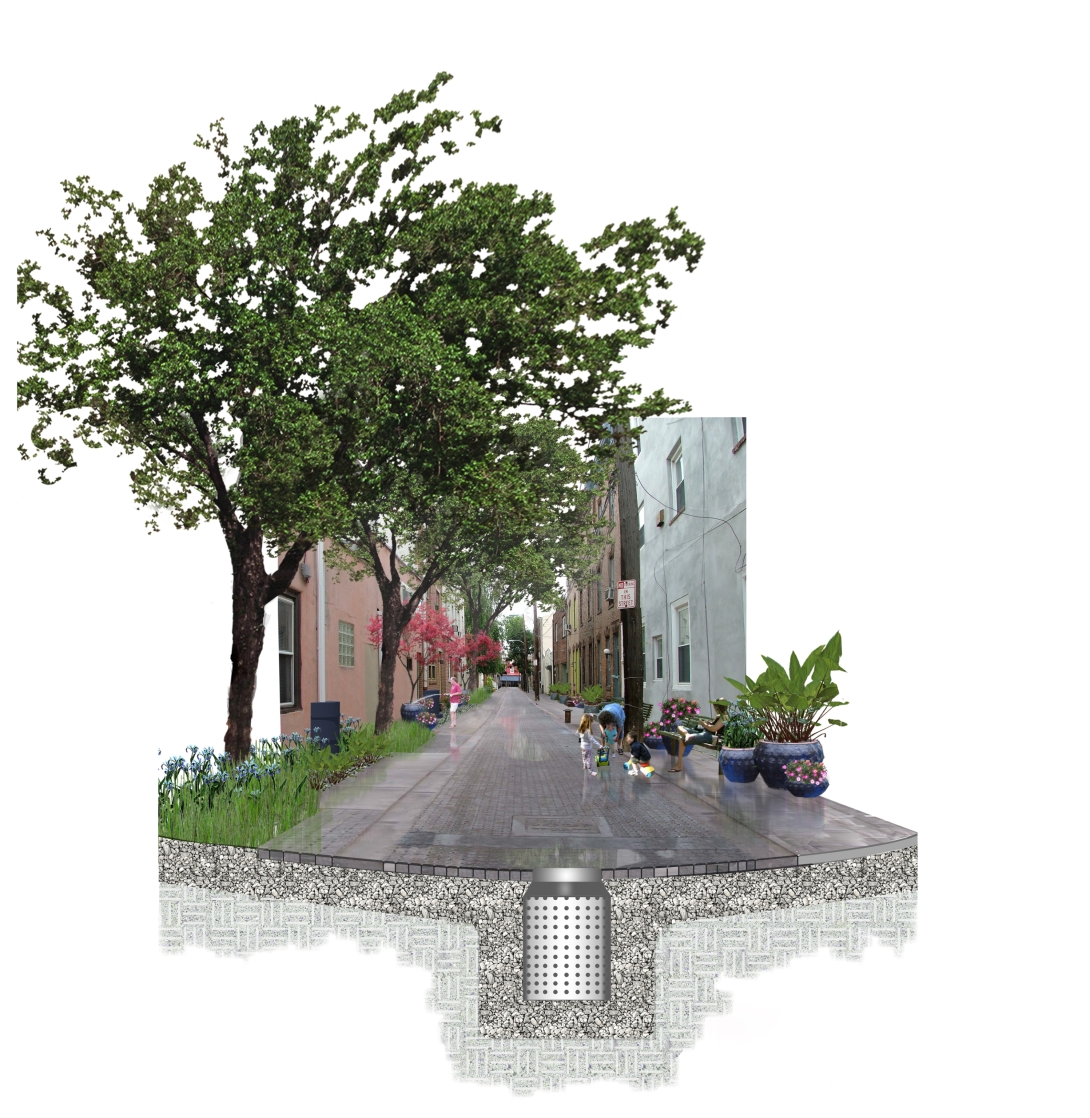 Naturally cooling and draining a small street. Pavements and plantings along a narrow street in South Philadelphia can cool the street and improve its appearance while belowgrade gravel layers and filtration channels infiltrate water into soils rather than conveying it to the sewer system.
Naturally cooling and draining a small street. Pavements and plantings along a narrow street in South Philadelphia can cool the street and improve its appearance while belowgrade gravel layers and filtration channels infiltrate water into soils rather than conveying it to the sewer system. -
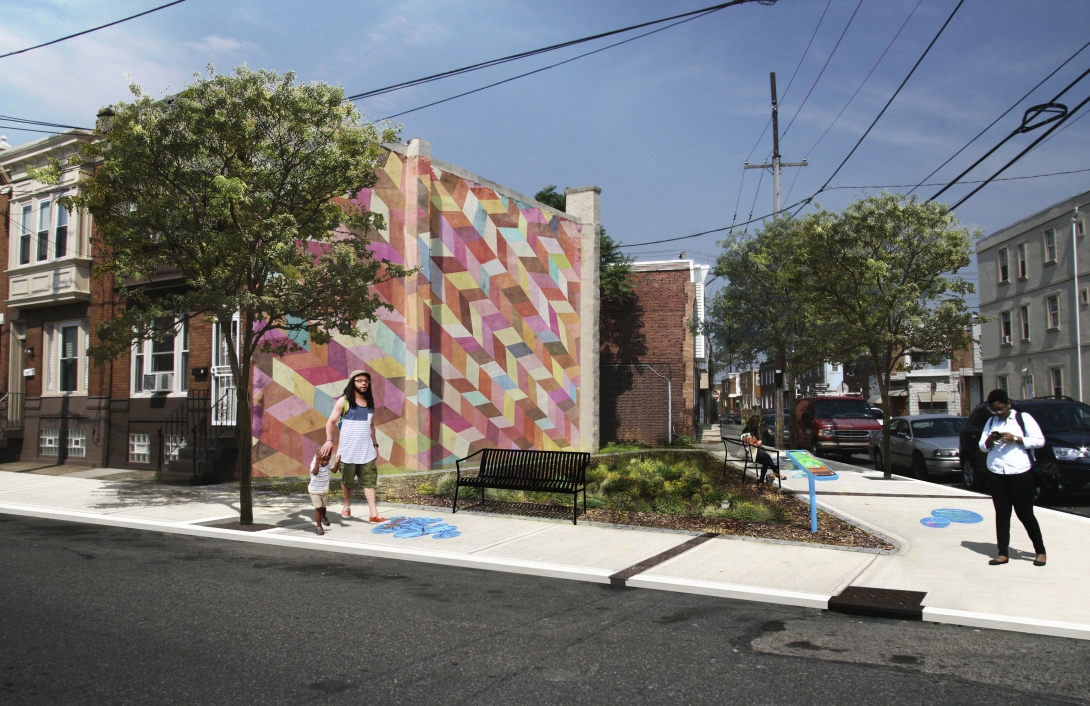 Highly-visible [stormwater management projects] around Broad and Pattison could engage visitors, improve major intersections and gateways to enhance the aesthetic of the Stadium District, and increase the visibility of stormwater management.
Highly-visible [stormwater management projects] around Broad and Pattison could engage visitors, improve major intersections and gateways to enhance the aesthetic of the Stadium District, and increase the visibility of stormwater management. -
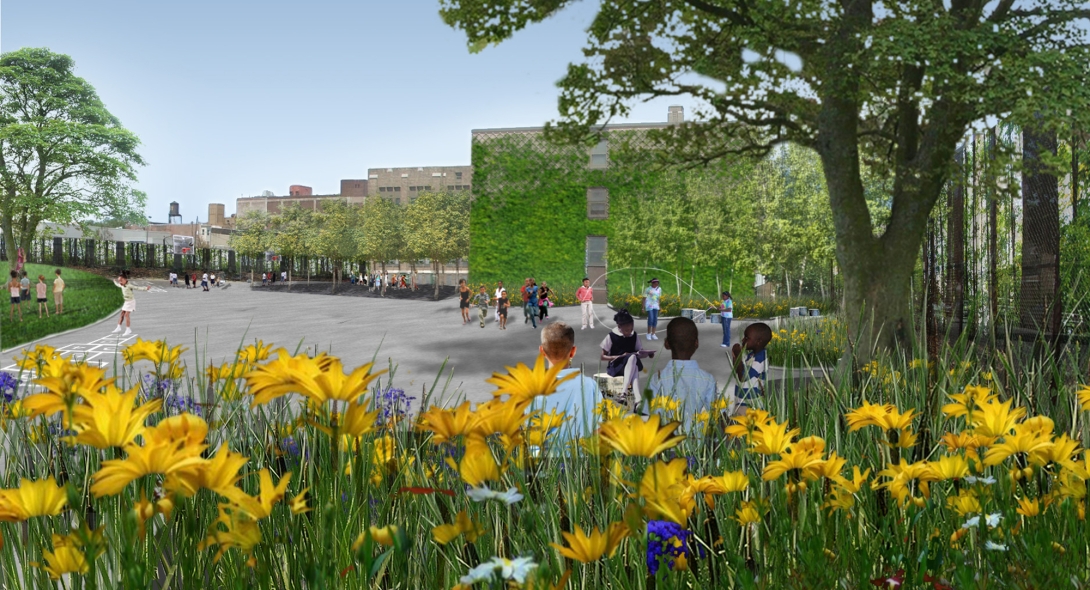 “By [greening] school grounds, we are... improving the quality of life of our children and future residents.” - GreenPlan Philadelphia civic engagement participant from Center City
“By [greening] school grounds, we are... improving the quality of life of our children and future residents.” - GreenPlan Philadelphia civic engagement participant from Center City


